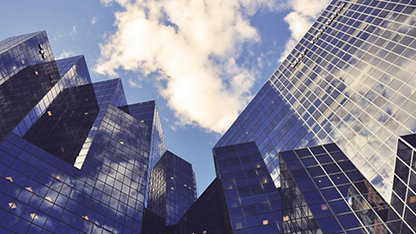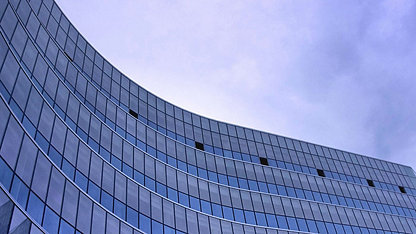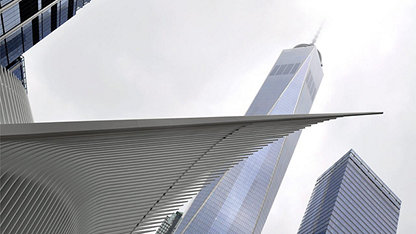The office 2.0: raise your game in the workplace sector or become irrelevant.
Traditionally real estate has been viewed as a bundle of rights held through a traditional lease or by a property owner. Whether leasehold or freehold, one company would use its space over a period and, if leased, this space would be charged on a per-square-foot basis.
As a company typically uses its space for only eight, 10 or even 12 hours per day, office space can be viewed over time as costly and inefficient. The CO2 emissions from the combustion of fossil fuels to run buildings play a major role in climate change.
As times change, particularly in the context of social and sustainability development goals, there has and will continue to be more focus on companies' footprints within the built environment. Inefficiencies that weren't as relevant before are relevant today as the population grows, infrastructure ages and technology continues to advance; people become enabled and choose to be mobile and more flexible in order to adapt.
This adaptability also applies to people's acceptance of the shared economy, dramatically increasing efficiency and challenging the old concept of the bundle of rights.
The big asks
One of the biggest asks from employees is "time back" and ways for them to be more productive through commuting or through providing conveniences. That can be anything from providing a workplace app, easier ways to book conference rooms or check-in visitors, to offering a fitness centre, better food options and even allowing dogs at the office.
The second biggest ask relates to understanding the organisation's approach to its impact on the environment and society. Increasingly, employees expect their employers to address space usage in terms of its environmental impact. For example, the Cone Communications Millennial Employee Engagement Study found that 64% of Millennials consider a company's social and environmental commitments when deciding where to work – and the workplace itself is the most visible testament of any company's dedication to sustainability.
Employee engagement
Just as employees are likely to disengage when they feel ignored over key organisational issues, they are likely to feel happier and more enthusiastic if they understand the "why" behind decisions relating to change in their workplace. Without this consultation, it can seem to employees that they simply had their desk or office taken away without understanding why.
Furthermore, without proper employee consultation to really understand what is needed and valued, it is possible to miss the mark when it comes to design. What works spectacularly well for one company, group or team may not do for another. I see it repeatedly, for example with games tables that nobody uses because employees at the company in question are worried what their managers will think. Yet at other firms, games tables can be very successful and a fun element that increases collaboration and improves working relationships.
The inner workings
Over the past 10 years the gig economy has grown enormously, and the Intuit 2020 Report predicts that more than 40% of US workers could be freelancers by next year. With this new way of working, companies are thinking more about effective ways to help freelancers and contract workers plug in quickly and feel productive, welcomed and part of the team. At WeWork, we're finding that freelancers and first-time entrepreneurs report that proximity to other entrepreneurs rather than setting up at home, or at the local coffee shop or traditional office, gives them a competitive edge.
Comfort, acoustics, natural light and fresh air are the underpinnings of an employee's ability to function well throughout their working day. Dr Joseph Gardner Allen, assistant professor of exposure assessment science at Harvard's TH Chan School of Public Health has conducted research that found workers in properly ventilated buildings performed twice as effectively on cognitive and decision-making tests when compared to those in poorly ventilated buildings.
People spend 90% of their time indoors and 90% of the cost of building occupancy are the employees. Therefore, it is important to consider indoor environmental quality and its impact on health and productivity. Often this is an afterthought, yet the results of Allen's studies suggest that even a modest improvement to indoor environmental quality may have a profound impact on the decision- making performance of workers.
On-demand, or no demand?
To get the right solution for large corporate enterprise clients, we spend a lot of time sitting with their real estate group and different stakeholders in the business to observe the way they work and determine what is and isn't working for them. We consider usage data, work movement patterns, conduct research and undertake surveys to ensure we're giving insights-driven recommendations.
The demand for data-driven real estate solutions will, in time, result in there being more variation of the space that is offered by owners to occupants. Real estate is becoming an "on-demand" industry and landlords will be able to build and provide for space as a service, managing a different type of space demand by freelancers, companies, and start-ups. They will have techniques to charge effectively for incremental of space which will redefine property valuation and the meaning of the "bundle of rights" for a lessee or owner.
Now is an incredibly exciting time to be working in commercial real estate as it is moving forward as a product type, completely being transformed by technology, society and work. This change is advancing very quickly and drawing in new thinking and professionals with new and different skillsets creating alternative ownership and business models and advanced workplaces, no longer just places where work happens. Seeing things differently, challenging old models, bringing in new skills and creating platforms and products that can be consumed in various ways by tenants and workers will mean the difference between success and failure in property in the coming years.
Maureen Ehrenberg is Global head of digital facility and asset management services, WeWork

















